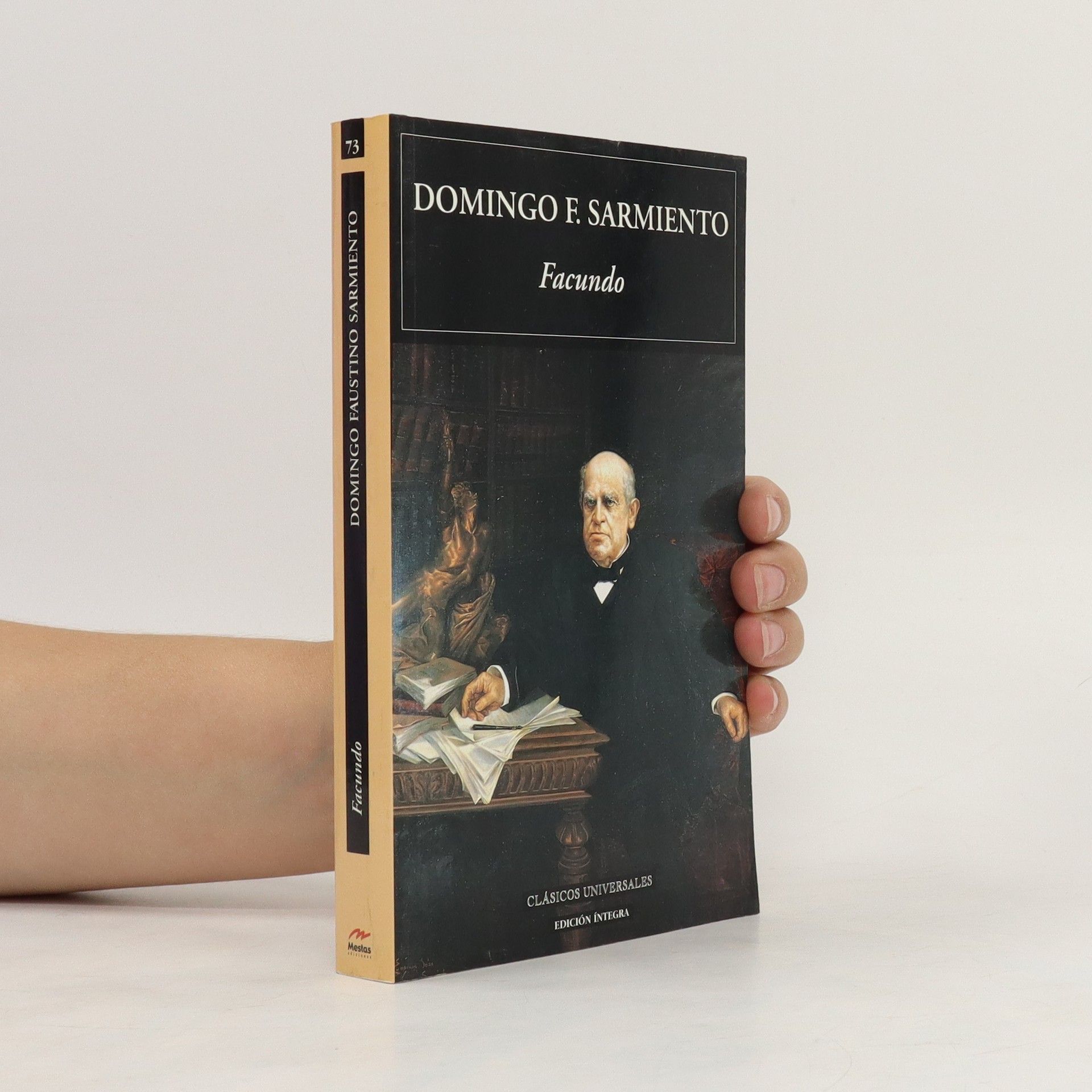Facundo
- 315 stránok
- 12 hodin čítania
Una de las obras fundamentales de la literatura argentina
Domingo Faustino Sarmiento bol argentínsky aktivista, intelektuál, spisovateľ a štátnik, ktorého dielo ovplyvnilo 19. storočie v Argentíne. Osobitne sa zameriaval na vzdelávanie a bol považovaný za „Učiteľa“ Latinskej Ameriky. Jeho rozsiahla tvorba zahŕňala žurnalistiku, autobiografiu, politickú filozofiu a históriu. Vo svojom najslávnejšom diele kritizoval diktatúru a kontrastoval osvietenú Európu s barbarstvom argentínskych pomerov. Počas svojho prezidentského obdobia presadzoval vzdelanie a demokraciu a modernizoval infraštruktúru krajiny. Jeho literárny odkaz spočíva v podpore osvieteného myslenia a v boji proti diktatúram.

Una de las obras fundamentales de la literatura argentina